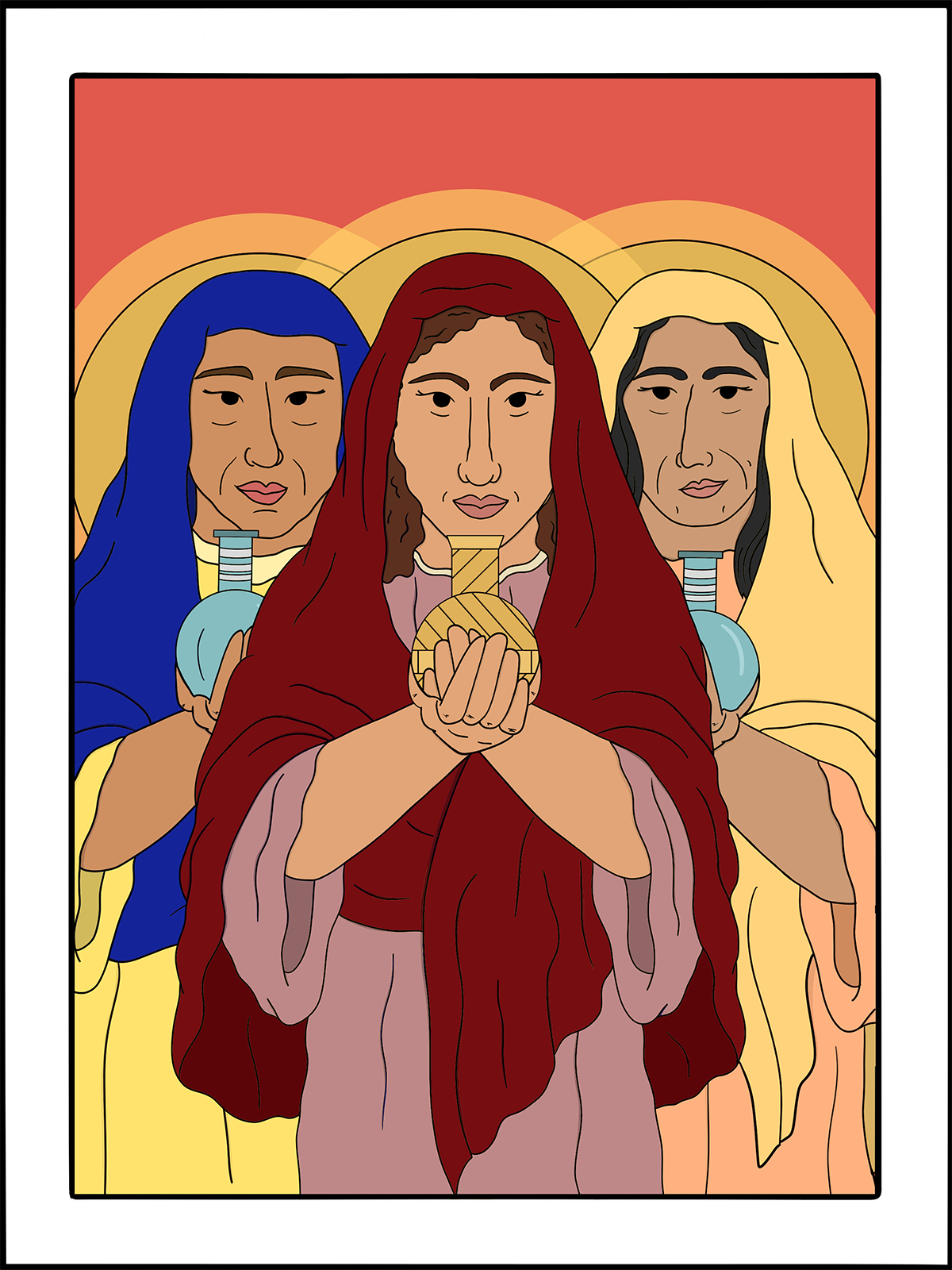
August 3
Joanna, Mary, and Salome
Myrrh-Bearing Women
art by Rev. Kirsten Kohr of Uhrichsville, Ohio Almighty God, who revealed the resurrection of your Son to Joanna, Mary, and Salome as they faithfully came bearing myrrh to his tomb: Grant that we too may perceive the presence of the risen Lord in the midst of pain and fear, and go forth proclaiming his resurrection; who lives and reigns with you and the Holy Spirit, one God, now and for ever. Amen.
Joanna, Mary, and Salome are traditionally counted as the three women who came to Jesus’ tomb early in the morning on the day of the resurrection in order to anoint his body with myrrh and other spices. They were followers of Jesus during his earthly ministry and remained with him throughout his arrest, crucifixion, and burial, and they discovered his empty tomb after his resurrection.
Little is known about the lives of Joanna, Mary, and Salome beyond their faithful and unwavering devotion and service to Christ. Joanna is identified in the Gospel of Luke as the wife of Chuza, a steward of Herod, and in Luke 8:2-3 is counted among the women who followed and provided for Jesus after having been healed by him.
The Gospel of Mark includes Salome in a list of women present at the crucifixion without any further information; according to early Christian tradition, Salome was a relative of Mary the Mother of Jesus.
In addition to Joanna, Salome, and Mary Magdalene, Matthew 28:1 lists a woman it refers to as “the other Mary.” Mark 16:1 refers to her as Mary the mother of James. John 19:25 recounts that Mary the wife of Cleopas was present at the crucifixion, and historically the Christian tradition has tended to assume that all three of these Marys are actually the same person.
The little information that we do have about these women shows them to be faithful disciples and worthy of our commemoration and, more importantly, emulation. There is a particular devotion to these “Holy Myrrhbearers” in the Orthodox Church, and the second Sunday after Easter is celebrated as “Myrrhbearers Sunday.”
Excerpted directly from “Lesser Feasts and Fasts 2022,” p. 342-343.
Lessons and PsalmActs 2:29-36
Psalm 50
Mark 16:1-8
Preface of a Saint (3)

